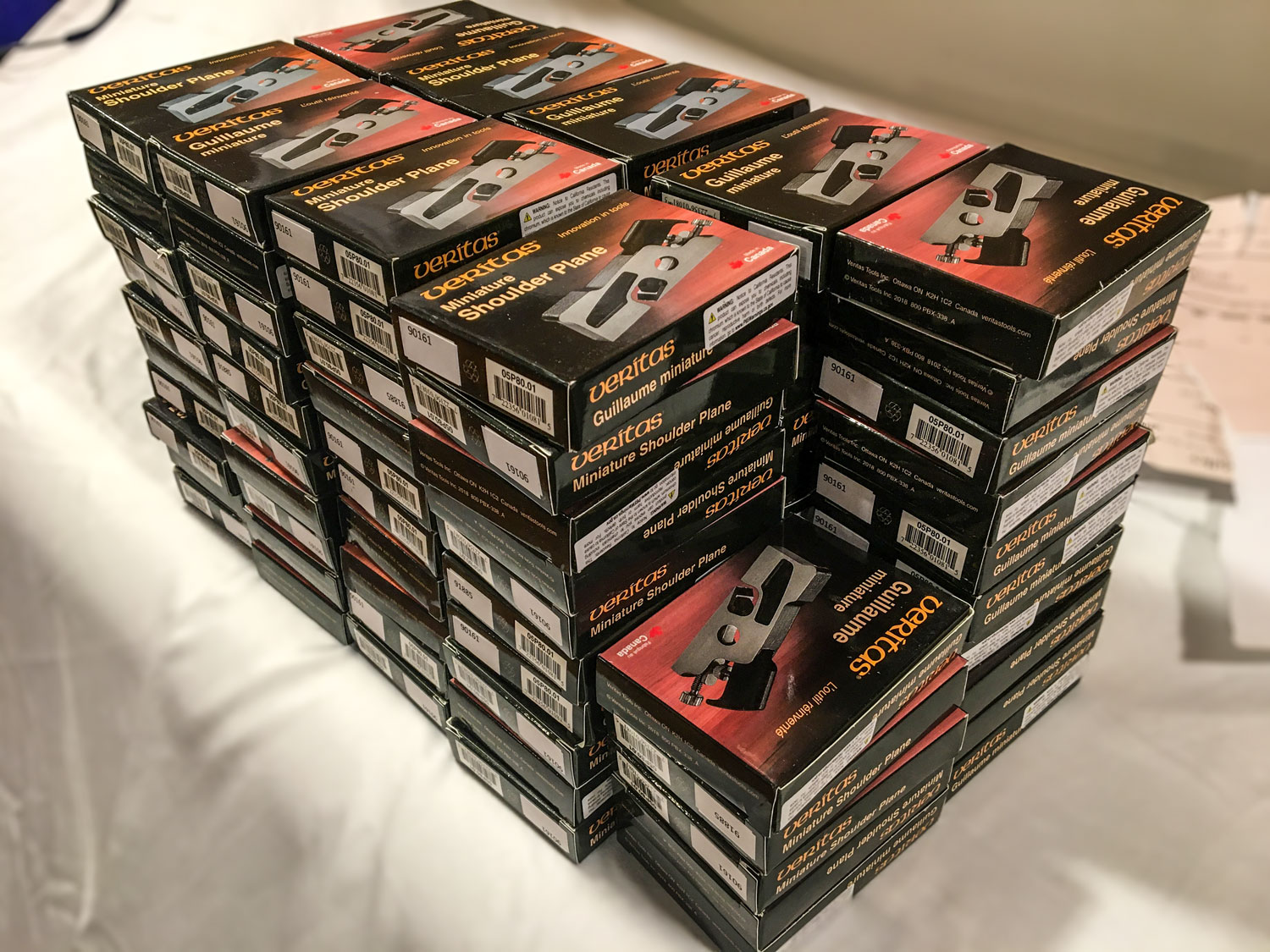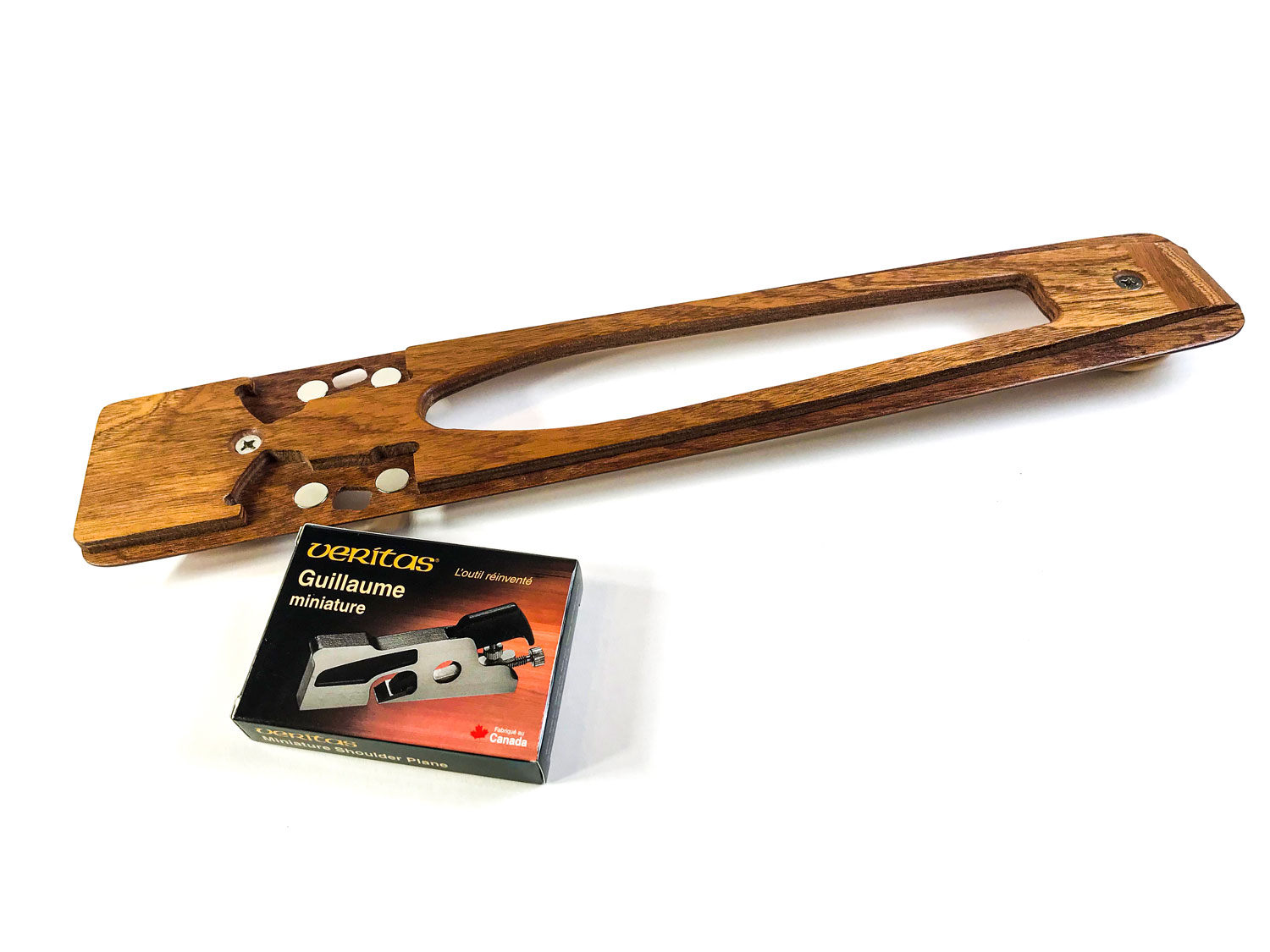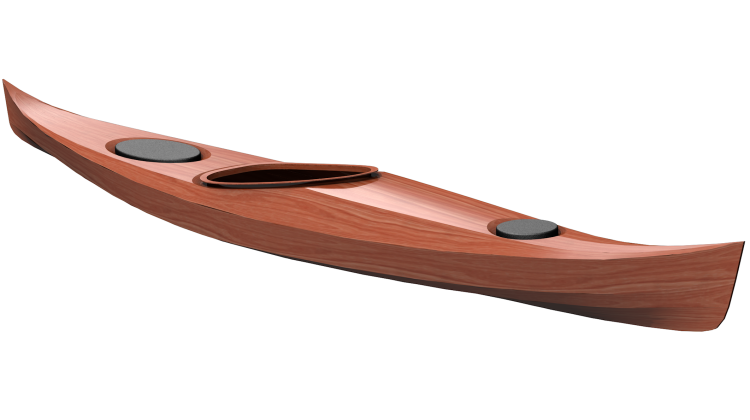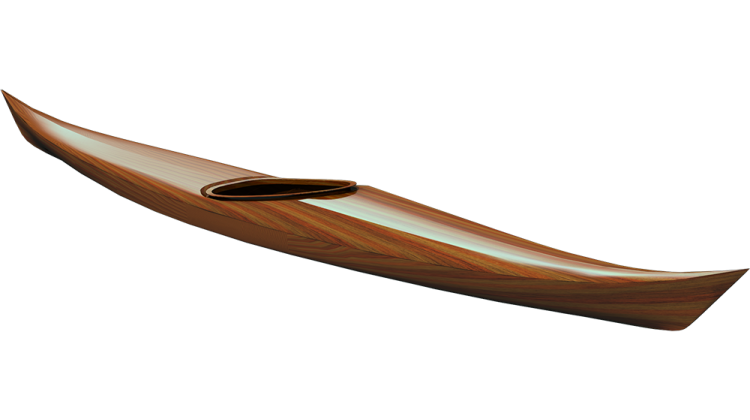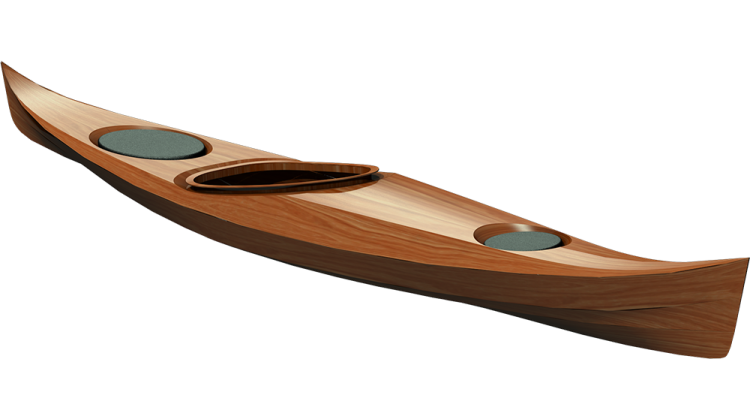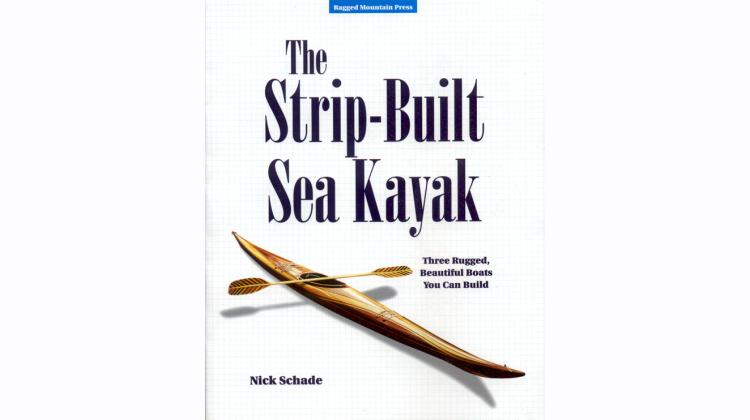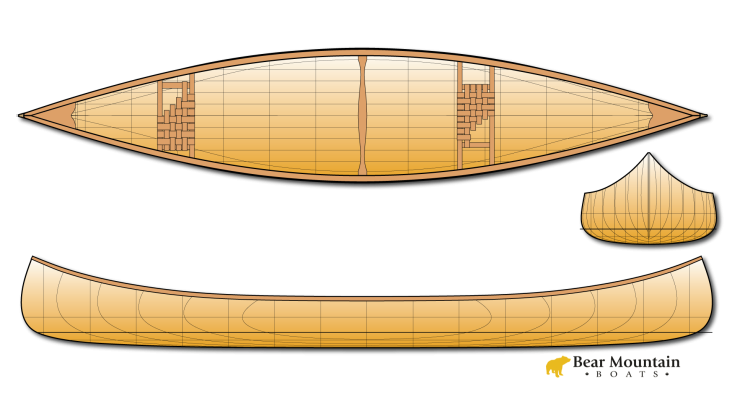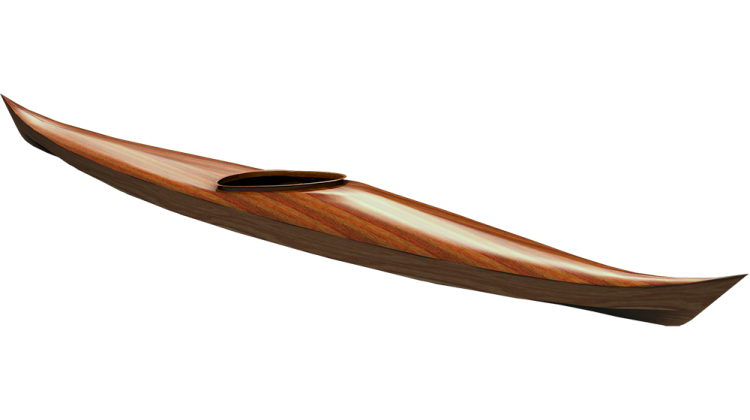- Image

Starting a Small Manufacturing Business
One of the things about operating as a small business is, you don't know how your business will operate until you start doing it. When I first made my RoboBevel available for sale, I thought it was sort of cool and maybe a few other people would like it as well. My first run of the tools was four. As in 1, 2, 3, … 4. When I originally added the tool to my website, I had four in inventory. Those four were sold within the first hour of going live.
I really had to scramble to buy material and make more. I was buying nice 5/4 mahogany, re-sawing it half, planing it down to 3/8" thick. Cutting it into blanks then putting each blank on my CNC machine, cutting one side, swapping out the first blank for the second, and repeating until all the blanks were drilled for the handle mounting screws. I then switched bits on my router to do the engraving, machined all the blanks. Then switched bits, flipped the blanks and machined all the front side stuff.
I use a round over bit in a router table to clean up some edges. Then sanded each one by hand through several grits of sandpaper. After that I wiped on a finish with a wet rag dipped in varnish. From there I had to glue in the magnets, each getting a drop of epoxy to hold them in place. I then had to mount all the handles which also had to have finish hand applied.
This was completely unsustainable, but orders kept coming in.
Optimizing Production
I eventually moved to making the tools out of high quality Sapelle marine plywood. This allowed me to cut 12 tools at a pop. I still had to change bits and flip the material, but not as frequently. I could set up a bit in the CNC router, run all the operations for that bit then switch bits and run the next bit. I only needed to swap the material after 12 tools were done for each operation.
But I was screwing the material down to my MDF spoil board on my machine in the same place every time. Eventually the MDF in the holes surrendered and would no longer hold the material. So I had to make jig with threaded T-Nuts installed to hand the multiple swaps. I've also spent a lot of time honing the CNC tool paths to minimize wasted motions while at the same time improving the quality of the cuts so had less sanding to do.
As time has gone on I've gotten a pretty good system for the CNC machine. And a similar process of trial an optimization has happened for every step of the production. I found better sanding tools, created streamlined varnishing processes. I've found a fairly reliable source for the knobs I use for handles. I found magnets that come with adhesive pre-applied. I've made jigs to hold the RoboBevel while installing the magnets so they end up all pointing the same way so they hold the shoulder plane more securely and let me stack the unfinished tools in a organized stack.
Every time I have made a run of tools I have found some aspect of the process to improve. Just last this fall I created an arbor press system to help secure the self-adhesive magnets in place so they are less likely to pop out. (Use CA glue to put them back in if you need to).
Settling Into a Groove
At this point I generally do production runs of 180 RoboBevels at a time. While the CNC machine does the initial shaping, there is still a lot of hand work. I still use the router table and round-over bit to clean up some edges. I've got some good sanding tools that I can chuck into my drill press, but each RoboBevel gets handled nearly 10 times before it is ready to be boxed up and shipped out. I do all the work myself in my shop. It is still an involved process that takes a lot of time away from building boats and other more exciting (to me) projects.
When I first set the pricing on the RoboBevel Tool I arrived at it by looking at the price of the Veritas miniature Shoulder Plane that is used as the cutting tool. The Shoulder Plane was $40 at Lee Valley Tools. I figured a logical price for the whole RoboBevel system would be $100, therefore I set a price of $60 on the RoboBevel. This was the extent of my thought process on pricing. It was just a round number. It didn't really account for the cost of materials, machine time and labor. Even with all the work I have done to improve my production it is still a big task.
In the past four days I've sold another eight tools. The RoboBevel is my single best selling product and keeping up with demand requires a fair amount of time. While the $60 price point made sense to me when I thought an inventory of four tools would hold me for weeks, I now need to step back and look at the economics of it all. I have to raise my prices on the RoboBevel.
The Whole Package
I have always felt bad that I had to send folks someplace else to get the Veritas Miniature Shoulder Planes that are required to use my RoboBevel. It was inconvenient. Veritas, the company that makes the shoulder plane does not normal sell wholesale to outlets who are not authorized dealers of the whole Veritas line of tools. I didn't want to be a dealer of their whole product line, I just wanted to be able to supply everything my customers needed to make my tool work, all in one place.
I am excited to say that they eventually understood what I wanted to do and agreed to give me a discount on a large purchase of shoulder planes. It isn't exactly wholesale pricing, but it did make it possible for me to supply the planes without losing money. If I purchase 100 shoulder planes at a time I can cover the cost of shipping.
I was also finding that Veritas was running out of stock of the shoulder planes fairly regularly. This made it hard for folks buying the RoboBevel to find the plane when they needed it. I am hoping the by running down the inventory at Veritas they will start producing more of the shoulder planes to meet the increased demand so everyone who buys my RoboBevel will be able to get the shoulder plane at the same time. This will save both my customers and myself the angst of worrying that they won't be able to get the shoulder plane when they need it.
The Bottom Line
I've decide I will be selling the tools at the following prices:
- RoboBevel including the Veritas® Miniature Shoulder Plane for $129,
- RoboBevel without the Veritas® Miniature Shoulder Plane for $95,
- The Veritas® Miniature Shoulder Plane alone for $45.
I am overwhelmed with how popular the RoboBevel has proven to be. I get a lot of great feedback from people using it. I think it has revolutionized how people are building strip planked boats, making building without cove and bead strips much more accessible and resulting in better looking kayaks, canoes and small boats.
I believe my price is still very fair for what I am offering, it is just more in line with the time, effort and expense I put into making the tool. I appreciate everyone who has supported me in developing this tool.

